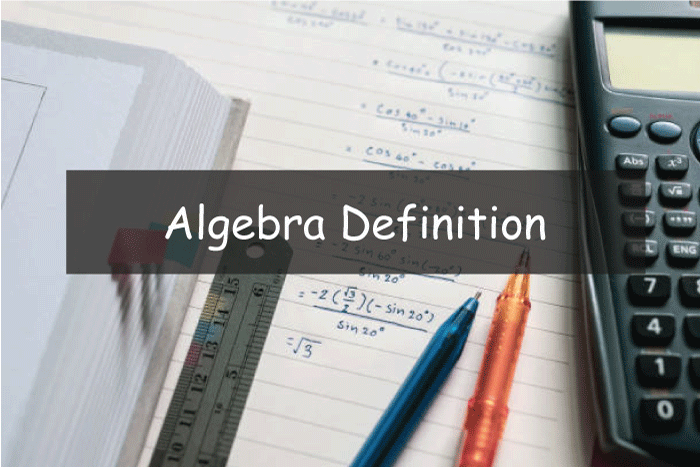Algebra definitionIntroductionOne area of mathematics known as Algebra deals with studying mathematical symbols and the rules for manipulating them. Algebra can also be used to express mathematical relationships and solve equation-based problems. To solve equations and explain issues mathematically, variables, constants, and operations are taught in the study of algebra. 
What is a variable, or what is a constant? This is a question that most students there frequently ask. A variable is essentially a letter or symbol that may be used to signify specific unknown values or quantities, and these quantities have the potential to change at some point. Origin of the Word "Algebra"The Arabic term "al-jabr," which means "reunion of broken parts" or "completion," was when the word "algebra" first appeared. The Persian mathematician, astronomer, and scientist Muhammad ibn Musa al-Khwarizmi used the phrase "al-jabr" in the title of a book titled "Kitab al-Jabr wa'l-Muqabala" (The Book of Restoration and Reduction) in the ninth century. Al-Khwarizmi offered a systematic strategy in his book for resolving linear and quadratic equations that involve "completing the square" and "reducing" terms. In his book, he also introduced the idea of "algorithm" and the usage of Arabic numerals, which greatly impacted the advancement of mathematics and science in the Islamic world and elsewhere. Through the Latin translation of al-Khwarizmi's text, "Liber Algebrae et al mucabala," the word "Algebra" was first used in European languages. "Algebra" later replaced this Latin term. The phrase eventually came to be used to describe the entire branch of mathematics that deals with equations and their answers. The study of algebra now encompasses many subjects, such as algebraic geometry, abstract algebra, and linear algebra. Al-Khwarizmi and other mathematicians in the Islamic culture gave rise to this large subject of mathematics, which is referred to as "algebra." Algebra as a Branch of MathematicsMathematics area of algebra deals with the rules for using mathematical symbols to solve equations and discover mathematical relationships. The operations that can be applied to abstract structures like groups, rings, and fields are studied in this topic. Numerous branches of mathematics and science, engineering, economics, and many other fields heavily rely on algebra, a fundamental branch of mathematics. It offers a strong tool for dealing with quantities and relationships between them. There are numerous subfields of algebra, such as algebraic geometry, linear algebra, abstract algebra, and introductory algebra. Basic algebraic operations, including addition, subtraction, multiplication, and division, and equations involving one or more variables are covered in elementary algebra. While abstract algebra is concerned with the properties of algebraic structures, linear algebra is concerned with vector spaces and linear transformations. The study of geometric objects described by algebraic equations is known as algebraic geometry.
Next TopicAlliteration Definition and Examples
|
 For Videos Join Our Youtube Channel: Join Now
For Videos Join Our Youtube Channel: Join Now
Feedback
- Send your Feedback to [email protected]
Help Others, Please Share










